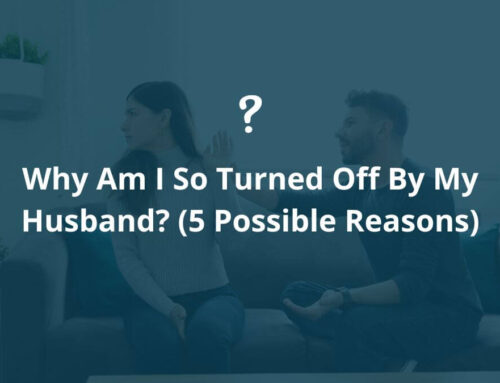Is depression trying to ruin your marriage? Do you need urgent help? Our Marriage Helper Workshop has a 70%+ chance of saving marriages. Don’t wait. Book a call with a Workshop Advisor today. They can help you decide if our program is good for you. Find hope and healing for your relationship.
Dealing with depression can be tough alone. If your spouse has major depression, it can feel very heavy for you. This issue can really strain a marriage, especially if other problems are also present. At Marriage Helper, we understand that couples face several challenges when their partner has symptoms of depression or another mental disorder, including feelings of despair and marital problems.
These can include addiction and relationship problems. This blog aims to help you learn how to support your spouse’s depression symptoms and depressive disorder during this hard time and take care of your marriage as well, despite the significant impact it may have on both of you.
Understanding Emotional Attraction and How It Connects to Depression
Let’s look at emotional attraction. Emotional attraction means creating good feelings for your spouse. It involves your words, actions, and kind gestures that help your spouse feel loved, valued, and secure. When one partner feels down, it can hurt their emotional connection and their desire for intimacy. A depressed partner might pull away, talk less, or show they feel unhappy. This can make the other partner feel confused, frustrated, and even apathetic.
It’s key to see that these reactions show the illness, not their love for you. You need to build that emotional bond. This will make your connection stronger and help your spouse feel better. You should create a space where your spouse feels safe, understood, and loved, even when times are tough.
Depression in Marriage: Tips That Can Help
Talk Openly and Show Care
Good communication is key to a healthy relationship, especially with your spouse. It is important to show you care and want to understand how they feel. Listening closely is very important. Acknowledge their feelings without trying to solve the problem right away. Sometimes, just being there to listen makes a big difference. Allow your spouse to share their thoughts when they feel ready. Communication goes both ways, so be open to what they say. Always try to keep a kind and respectful discussion.
How to Fix My Marriage
Support from loved ones is very important when dealing with depression. However, getting professional help can also be very helpful. This can give them the right tools to handle their feelings well. Remind them that asking for help is brave. Let them know that you will always support them on their journey.
Patience is important in these situations because healing takes time. Let your spouse know that you are there for them every step of the way. Be ready to listen and provide comfort when they need it. It’s important to remember that everyone deals with their feelings in their own way. So, understanding and respecting their pace is key to giving the best support.
Show Love and Support Daily
Little actions can matter a lot. Help your spouse do things they used to like, even if they feel down. Support good habits like working out and eating healthy. Be kind, as feelin’ low can drain their energy and emotions. Tell them you love them, especially when times are tough. Small things, like making their favorite meal or giving a hug, can show they are not by themselves. Keep giving your love and support, even when they feel far away. This can be the first step to help them get professional care and find ways to feel better.
Be Emotionally Attractive
Creating a kind and loving home for your spouse is key for a healthy marriage. Small things like a smile or being considerate can really help tighten your bond. Think about how your words and actions affect your partner. Choose to be kind instead of critical. By building a caring and supportive space, you can make your partner feel safe and valued, especially during tough times.
Furthermore, managing your own stress and feelings is important to be a strong support for your partner. By caring for yourself and practicing self-care, you can handle tough times better together. You can work as a team to get through any problems that come up. Remember, small acts of kindness and understanding can really help to build a loving and lasting relationship.
Care for Yourself Too
Supporting a spouse who has serious depression can be tough on you. It is important to take care of yourself and watch for any signs of feeling down, including changes in your libido. Find things that make you happy and help reduce stress. This might be exercise, hobbies, or spending time with friends. When you feel good, you can better support them. Looking after your health also helps you feel less tired and can really help both you and your marriage. Remember, taking care of yourself is just as important as caring for your spouse who has depression.
Set Realistic Goals and Limits
Fixing a marriage that feels like it’s been under a heavy weight takes time. Don’t think changes will come fast. Celebrate small wins and prepare for ups and downs along the way. Set healthy boundaries to guard your feelings. You can’t “fix” your spouses depression, but you can stand by them as they heal. Don’t feel shy to ask help from friends, family, or a professional if it feels too much. Keep in mind, you are both in this together, but you don’t have to take all the weight of their healing on your shoulders,
Bring Back Love and Affection
Depression can affect how we show affection. It’s important to express your love and gratitude clearly. Simple phrases like “I love you,” offering compliments, or saying thank you can make your marriage stronger. Physical touch, such as hugs or holding hands, can help you feel closer. Be aware if your partner cannot show affection right away; they might be dealing with loneliness. With time, true love can rebuild that closeness. Intimacy goes beyond just physical; it’s also about being emotionally connected and open with each other.
Use the PIES Method
The PIES idea stands for Physical, Intellectual, Emotional, and Spiritual dynamics of attraction. It gives a complete way to help your spouse and improve your marriage. By focusing on these four main areas, you can build a balanced and satisfying relationship with your partner.
- Physical Support: Taking care of each other’s health is important in a marriage. This means showing love through hugs, kisses, and touch. Supporting each other in staying healthy by working out together or cooking healthy meals can bring you closer.
- Connection Through Learning: Doing activities that challenge your minds together can strengthen your bond with your spouse. This could be talking about books, sharing cool articles, or starting a new hobby as a married couple. Good conversations and common interests can keep your marriage exciting.
- Emotional Connection: Creating a strong emotional bond is key for a lasting marriage. Talk honestly with your spouse about your feelings, fears, and goals. This helps build trust and closeness. Being there for each other in tough times and celebrating each other’s wins builds a deeper connection.
- Spiritual Growth: Sharing spiritual experiences as a couple can add unity and purpose to your marriage. This might include going to services together, praying as a pair, or talking about your beliefs. These shared moments can bring comfort and meaning to your life together.
By using the PIES idea in your marriage, you can create a good balance between these important parts of support and connection with your partner. Focusing on each part—physical, emotional, and spiritual—can help develop a more satisfying and strong partnership based on understanding and care for each other.
Physical
Encouraging a healthy lifestyle is important. This includes regular exercise, balanced nutrition, and enough rest. These habits can help your body feel better. They can also make your mind feel good by raising your mood and energy. Doing activities together, like going for walks or practicing yoga with family or friends, can make your relationships stronger. These shared experiences help create lasting bonds. When you focus on self-care and make healthy choices, you can improve your life and promote wellness for yourself and others.
Intellectual
Having deep talks about mentally stimulating subjects and sharing your interests with your partner can really help your relationship. It can also help them grow as a person. By encouraging each other and sparking curiosity, you can create a good space for learning. Activities like reading together, trying new things, or exploring shared interests can help bring you closer and keep your minds active. This hands-on way benefits your marriage and helps reduce depression while improving overall happiness. Good communication and support are important for a healthy and happy partnership. In this way, both partners can grow and do well together.
Emotional
Supporting open talks, showing care, and making a safe place for your spouse to share their feelings are important steps for a healthy relationship. Acknowledging their feelings and letting them know you are there for them can make your bond stronger and help them feel secure in the relationship.
An alternative to couples’ therapy (our workshops) can be a useful way to improve how people talk to each other and grow closer. You can learn to communicate better, solve really challenging problems in a positive way, and understand each other more. Getting help from a professional does not just help the relationship. It also gives a safe space for both spouses to share their concerns and support each other’s growth.
Remember, focusing on clear talk and emotional links helps build a strong and lasting marriage.
Spiritual
Doing activities that are important to us, like practicing your faith, being in nature, or taking time to relax, can feel very uplifting. When we care for the physical, mental, emotional, and spiritual needs of both people, we can build a strong base for healing and growth.
When people feel close to their true selves and to a bigger purpose, it often brings them peace and strength. Spending time to develop these parts of ourselves can help us grow and bring spouses closer together. Whether it is finding comfort in nature, looking for support through spiritual practices, or thinking deeply about oneself, these activities can help people heal and feel better overall.
In tough times or when things are unclear, focusing on important activities can give people stability and clear thinking. These activities act as strong support that helps people face challenges with strength. When couples embrace practices that feel right to them, they can build a shared purpose and bond that helps them through both good and bad times.
Conclusion
Depression in a marriage is hard, but couples can face it together. A great way to start is by talking openly and caring for each other. Getting help from a professional can also be beneficial. Being supportive matters a lot. It is important to feel connected, take care of yourself, and set realistic goals to make the relationship strong again. If it feels too difficult, asking for more help is okay. With time, love, and attention to each other’s well-being, your marriage can become even stronger after this tough time.
Remember, you are not alone on this path. Many couples go through tough times in their marriage. We have helped thousands of couples save their marriages.
How can depression and loneliness affect a marriage?
Depression in a marriage can hurt how spouses talk to each other. It can cause feelings of being alone, anger, and confusion. Getting help through professional help and support from family and friends is important. This can help couples deal with the challenges that depression brings to their relationship.
No matter what’s going on in your marriage, we want to help you be the BEST version of yourself. Check out what we call the “PIES” by clicking here!
Is depression taking a toll on your marriage? Our Marriage Helper Workshop offers a lifeline. With over 70% success rate, we’ve helped countless couples rebuild their marriage. Let us help you too. Book a call with one of workshop advisors, today!





